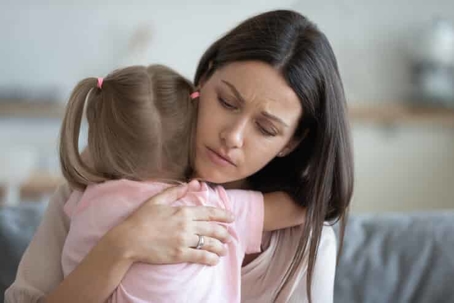When getting married, no one thinks of divorce. Instead, most newlyweds picture growing old with their partner and living happily ever after. Unfortunately, in some cases, partners grow apart and only have one solution: filing for divorce.
Going through a divorce can be trying, but things become even more complicated when children are involved. While you can’t protect your child entirely from the impact of going through a divorce and the changes that come with it, there are certain things you can do as a parent to help them get through it with less stress and trauma.
Discuss the Situation Early On
Often, parents make the mistake of putting off speaking to their children about the divorce until it is already underway. However, children aren’t blind. More than likely, your child has already witnessed arguments between you and your spouse and the struggles you have been having in your relationship. Not speaking to your child about it will only create confusion about what is going on in their home.
Although it may be difficult, it is best to sit them down and explain in the simplest terms what is happening at the very beginning of the divorce process. You should also assure them that mom and dad splitting up has nothing to do with them.
Minimize Conflict
You should also try to minimize your child’s exposure to parental conflict. While this is sometimes impossible to do, you should strive to keep any major arguments away from their presence.
As is always the case, you should take actions to remove yourself from any potentially violent or dangerous situations. In unhealthy relationships or situations, it is usually best to walk away sooner rather than later.
Create a Respectful Co-Parenting Relationship
As long as your legal interests and the safety of a family member are not threatened, every possible effort should be made to create a respectful and compromising co-parenting relationship.
Always try to communicate with each other in a professional and respectful manner. If you can do so, you will help foster a more emotionally stable and secure environment.
Maintain a Certain Sense of Normalcy
With divorce comes change. One of the most challenging struggles for children going through a divorce is its changes to their lives. In no time at all, they will have two separate homes, sets of holidays, and so on.
Since these changes are inevitable, it’s best to work with your co-parent when possible to ensure the rest of your child’s life stays as normal as possible. This means keeping them in the same school and both parents continuing to attend games, dance recitals, and other afterschool activities.
Show Support
Some children appear to handle their parents’ divorce with minimal stress or impact on their lives. However, they may still be hurting on the inside and not show it. With loving and supportive communication between you and your child, and perhaps with the help of a mental health professional, if it may help, you will be able to better address any internal pains they may be experiencing.
Sometimes, the effects of a divorce on a child do not appear for years. However, they can be quite profound, and healing becomes much more difficult later on down the road. Therefore, it is more important than ever to pay attention to your child’s emotional needs. Doing so will help them become a healthier, happier adult and better able to handle future relationships.
Understand Your Child’s Best Interests
Unless there are abusive or dangerous circumstances, your child needs both parents. Despite the divorce, California law encourages each parent to have loving, stable relationships with their children and act in their best interests.
In fact, under California law, both co-parents have a clear and specific duty to do so. Judges are serious about this requirement, and you should be as well. If you can act accordingly, your child will benefit and be much better off.
Don’t Make Them Choose
Despite the importance of your child feeling comfortable voicing their feelings towards the divorce, they shouldn’t be forced to make any custody or other major decisions on their own. It can be a big decision like who they will live with or a smaller one like where they will spend the holidays, but these decisions are for co-parents to make, not their children.
Put in the Work
Getting divorced and sharing custody of your child can be difficult. However, the more you put into developing and sticking to a solid co-parenting plan, the more your child will benefit by better coping with the divorce both now and later.
Honest Representation Every Step of the Way
At Marmolejo Law, we understand the frustration and stress that often takes place during these trying times. It is our goal to assist you with compassion and integrity every step of the way throughout the divorce process.
If you need any help during this difficult time, give us a call to schedule a consultation at (310) 736-2063. We are here for the best interest of both you and your child.

